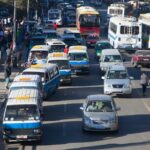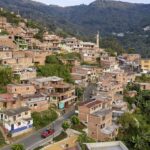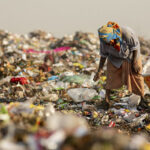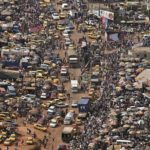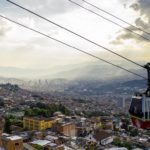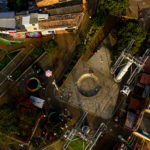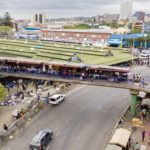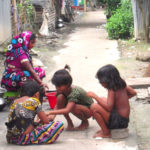Posts tagged with 'South Africa'
Cities have never been more engaged on climate action. At the 2021 UN Climate Change Conference (COP26), more than 1,100 cities representing a quarter of global CO2 emissions signed up to the Cities Race to Zero. In doing so, they committed ...

The Digital Transport for Africa (DT4A) initiative, led by WRI and partners and funded by the French Development Agency (AFD), has selected four winners of the first-ever DT4A Innovation Challenge. From private companies to universities and NGOs, these initiatives are helping to shift ...

When the world shut down last March, the urban housing conversation took on a radically different hue. Suddenly, housing was a public health concern – which, of course, it always had been. Where you live, and under what conditions, appeared ...

National governments face an enormous triple challenge right now: recovering from COVID-19, creating sustainable and inclusive development, and addressing the climate crisis. New research shows that focusing on cities is key to overcoming these challenges while generating considerable economic, social and environmental benefits. A ...

Solid waste workers have been indispensable to protecting cities around the world during the COVID-19 pandemic. Their heroic examples, from India to Vietnam to Latin America, have helped cities keep moving. But a critical alignment of factors is making their ...

When Cape Town, South Africa, and Chennai, India nearly ran out of water, these two cities managed to avert Day Zero with solutions that were creative and effective but far from perfect. In Cape Town, there were mile-long queues of people waiting for hours for water. ...

Over the past 50 years, transport planners have tended to focus on reducing congestion to improve people’s mobility within cities. But increasing road capacity, vehicle speeds and parking spaces have not solved urban traffic. Building more roads and parking just ...

Once-unthinkable water crises are becoming commonplace. Reservoirs in Chennai, India’s sixth-largest city, are nearly dry right now. Last year, residents of Cape Town, South Africa narrowly avoided their own “Day Zero” water shut-off. And the year before that, Rome rationed water to conserve scarce ...

Chennai faced a devastating flood in 2015 that killed hundreds of people and displaced many more. Today, the southern Indian city’s four main reservoirs are virtually dry. This crisis is not only due to lack of water. Lack of proper management is ...

Around the world, grassroots movements like Extinction Rebellion and Fridays for Future are sounding the alarm about the climate crisis, and government representatives are responding to the call: national parliaments and cities have declared climate emergencies, the Green New Deal is gathering support in ...

Emmanuel leaves his home at 5 a.m. every morning with his two daughters. They take a mini-bus, or “tro-tro,” from their house in Awoshie, a residential neighborhood of Accra, Ghana, to the central business district where Emmanuel works. The trip ...

Positive change happens in cities, but it’s often lost in a sea of bad news about air pollution, rising costs of living, traffic jams and inequality. When we launched the WRI Ross Prize for Cities in February 2018, we aimed ...

Last week, I had the pleasure of participating in a day-long roundtable discussion with the five finalists for the WRI Ross Prize Cities, organized by WRI at the Ford Foundation in New York City. The roundtable followed the first-ever award ...

Warwick Junction is a finalist for the WRI Ross Prize for Cities. Warwick Junction’s maze of stalls, arches and bridges can elicit wonder in any first-time visitor to South Africa’s largest marketplace. The area’s nine distinct markets are wedged between ...

When Rani, a mother of five in Khulna, Bangladesh, found that the tea stall outside her home kept flooding, she didn’t wait for a government climate resilience program to swoop in. Like many people in urban communities facing the effects ...

Page 3 of 7« First...234...Last »














